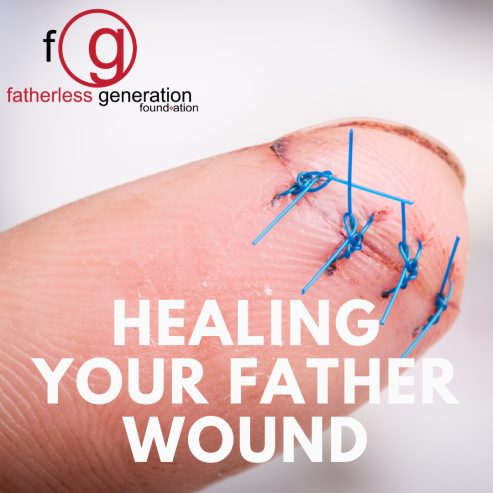
“Although childhood experiences are significant in shaping an individual’s worldviews, injurious elements from childhood do not have to dictate the present. Injurious attachment styles learned in early childhood experiences can be changed, relational mistakes can be corrected, negative patterns of relating can be exchanged for nurturing ones, and parental bonds can be healed. A person can learn to create healthier relationships, provide a platform for old wounds to heal, and progress in their spiritual journey. This level of healing is the will of God for each victim experiencing the pain of father absence.” – Fathers Presence Matters
What is a trigger?
Have you ever heard a song and it reminds of a person, a moment in your life, a relationship? Anything that makes you feel uncomfortable, rejected, defensive, anxious, abandoned, frustrated, angry, and unsatisfied.
- Songs
- Smells
- Conversation
- Cities
All of which seems like you got this way for no reason at all. Because emotional triggers are conscious and unconscious. But mostly unconscious.
You aren’t aware of what made you feel that way and so often you blame the person you’re talking to or the situation you’re in when the real reason for your reaction is that the situation triggered a learned reaction in your brain.
Common triggers to give you an idea of what to look for:
- Having to make a change
- Challenging yourself or learning something new
- Being criticized
- Failing at something
- When something goes wrong
- When you make a mistake
- When you make a mistake in front of others
- Being put on the spot
- When you procrastinate
- When you’re on a deadline, pressured, or rushed
- When your reputation is at risk
Triggers were originally created by your brain as a way to help you be efficient with your responses to the world around you and, ultimately, to keep us safe.
The continuous exposure to something does what is called wiring in your brain. Wiring is the path by which patterns are established and learned behavior is reinforced.
Once the situation—the place, person, or thing—is programmed into the brain with a certain emotion attached to it, this same thing becomes a trigger, meaning the next time you find yourself with that place, person, or thing, it automatically triggers that same emotion.
Unfortunately, sometimes our brain creates an association between the emotion and a person, place or thing that is NOT truly the cause. When this mis-association happens, the faulty wiring can do more harm than good. For example, if your parents told you “we need to talk” every time just before you got in trouble, then in the future if a friend or spouse says “we need to talk” you’ll immediately become defensive. You aren’t aware of the real reason you feel that way, and so you blame your friend.
The key to recognizing your negative triggers is to become a student of your own emotions. By becoming aware of your emotions you become aware of triggers, you start to take their power away because you can choose to react differently, instead of reacting automatically.
Ask yourself what tends to trigger your emotions. Then, for each one, consider in what way you react to those triggers and whether the reaction is appropriate or reasonable. Lastly, for each trigger, ask yourself:
- How could I react differently? How could I think differently? Feel differently? Act differently?
- What people trigger me? What do they do or say? What do I think as a response? How do I feel or act? Is it reasonable? What could be different?
- What topics of conversation trigger me? Why? How do I feel or act? What could be different?
- What places do I go that tend to trigger me? What do I think, feel or act? What could be different?
Take a look at a recent Facebook Live on What Triggers You?
Dr. Torri J.
Founder & CEO
The Fatherless Generation Foundation Inc.
